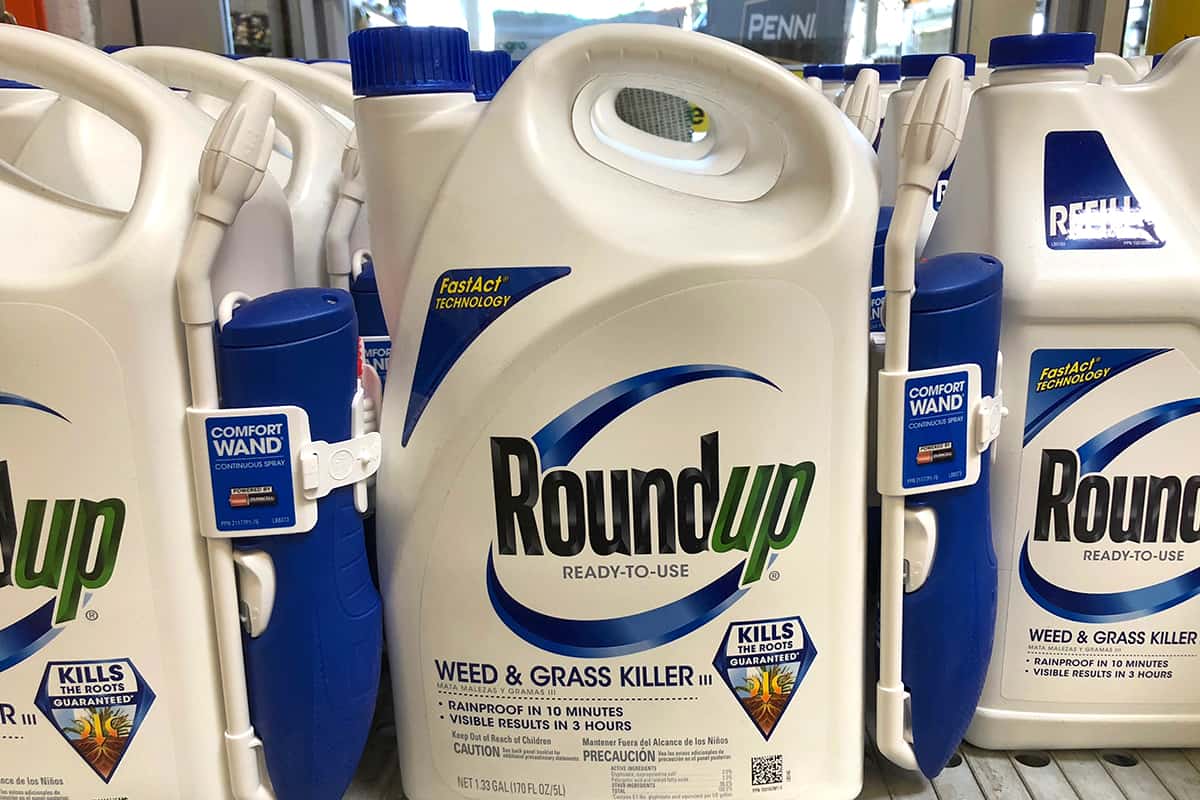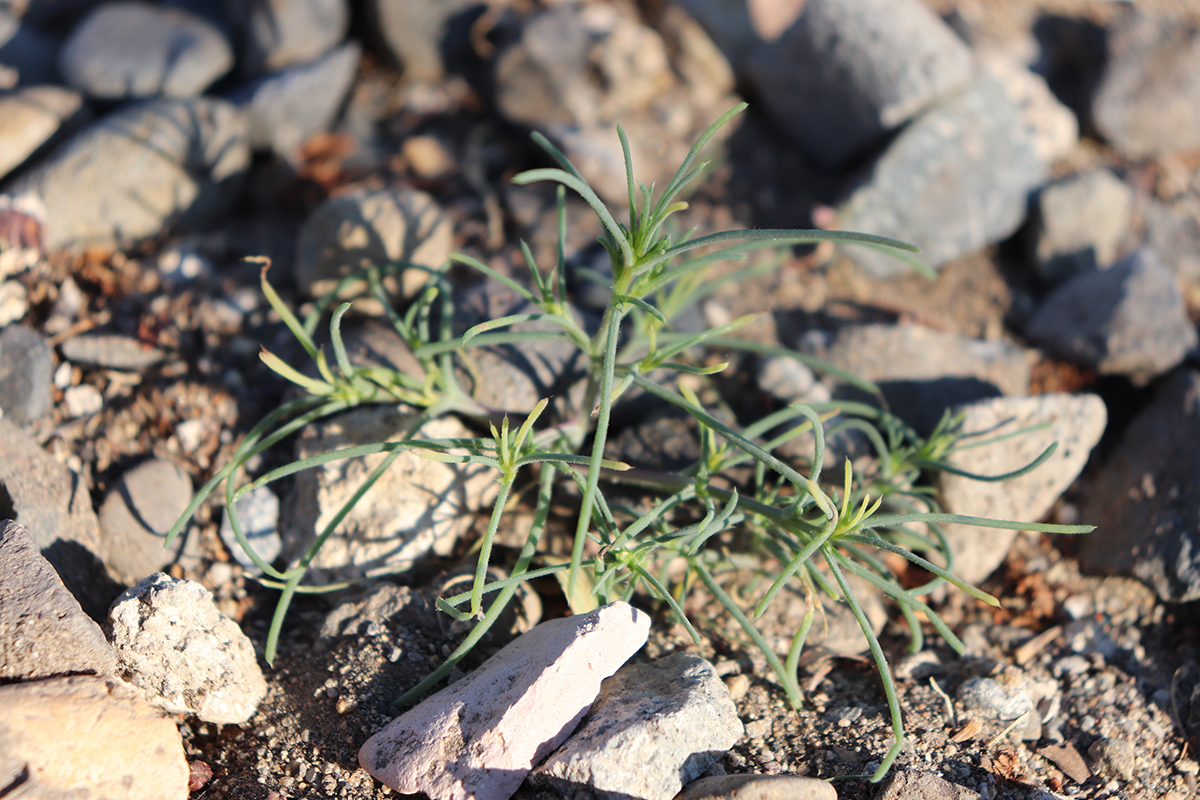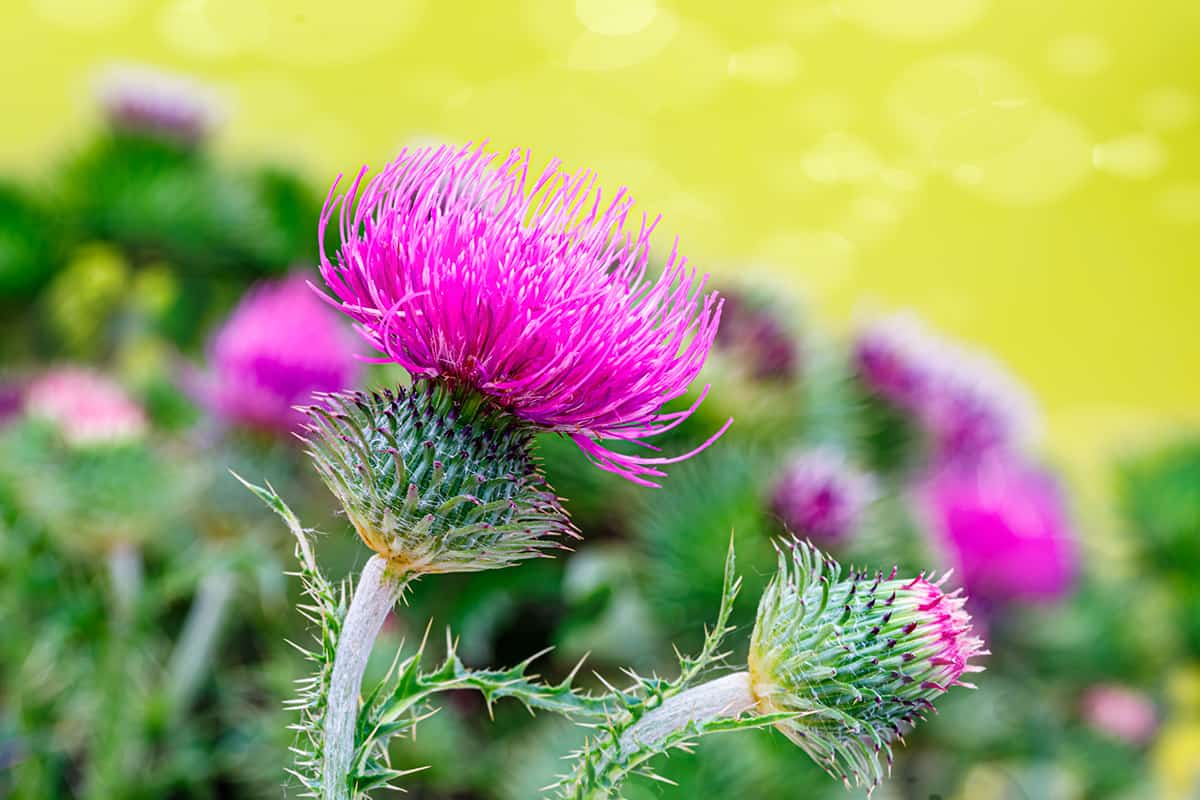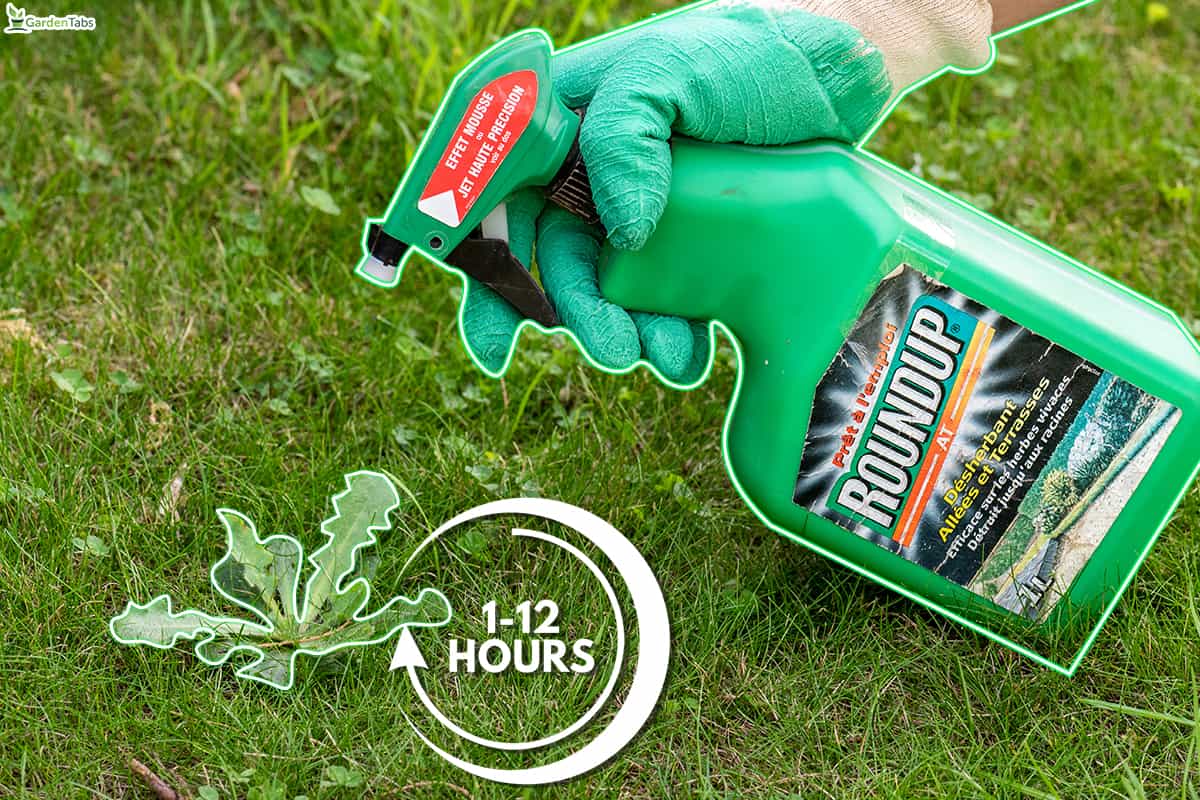Realizing you have weeds throughout your garden can be incredibly frustrating. Have you noticed thistle beginning to form around your property and don't know how to get rid of it? Can you use Roundup to kill and prevent thistle? Does it work well?
Luckily, we've done plenty of digging and have the answers below!
Yes, using Roundup products for thistle should effectively kill it. Whether it's Canadian, Russian, Scotch, or Milk variety, Roundup targets just about any living plant you spray it on.
The reason behind its effectiveness is the active ingredient glyphosate, which targets a weed's enzymes that keep it alive and growing.
As we start this article, we will cover all things using Roundup to kill thistle and discuss how to use it properly. Whether you're just noticing weeds, have had them for years, or need new products to use around your garden, we're here to help. With that said, let's dive right into this article below!
Will Roundup Kill Thistle? Which Varieties?
Gardeners generally see a high success rate when using Roundup to kill their thistle. Since thistle is a weed species, you want to target it with a strong enough product to kill and prevent it.

As we mentioned above, Roundup will kill just about any living plant you apply it to, so that is perfect if you have thistle overthrowing your landscape.
Whether you have Canadian, Russian, Scotch, or even Milk thistle weeds in your yard, using Roundup should effectively stop the plants from growing and spreading.
Again, that's mainly thanks to the active ingredient glyphosate. This ingredient essentially targets the growth enzymes inside your weeds and kills the plant from the inside out.
Think of this as a systemic killing, targeting your thistle's inside cells and then moving to the exterior. However, you need to follow the directions on your Roundup closely for it to work correctly.
How Many Different Thistle Varieties Are There?
Unfortunately, there are around 200+ thistle varieties actively growing worldwide. However, the main ones you need to worry about finding in your garden are Canadian, Russian, Scotch, and Milk thistle.
These four types of thistle are the most common throughout North America and in various USDA growing zones in this country. Luckily, Roundup will effectively target and kill all of them if you use it as instructed, so that's good news.
One thing about weeds is that they spread: rapidly. Because of their ability to spread and migrate from country to country, it can become impossible to control them.
Again, there are active ingredients that stand up against most living organisms in your garden, which include Roundup's main one, glyphosate.
As long as you follow the directions on your Roundup and use it directly on the thistle weeds in your landscape, you should be free from them before you know it.
This takes time and patience, so sit back and let your Roundup get to work!
Which Roundup Product Works Best For Thistle?

For those wanting to switch to Roundup, some lines work better than others from their long list of formulas. For example, according to the Roundup website, you want to use their Roundup® For Lawns Ready-To-Use formula if you have thistle.
Specifically, this product works well for Canada thistle varieties, which is good news for most gardeners. Since Canadian thistles tend to spread through pastures, rangeland, forests, lawns, gardens, roadsides, and waste areas, they're a hardier weed species.
Moreover, this Roundup product will work for any thistle variety, including the other three. The glyphosate is what you want to look for on the label, as this will kill your thistle the best.
Furthermore, Roundup recommends spraying your weeds as they appear for the best results. Thistles can spread quickly if you let them, so keep a close eye on your garden.
Even if you only notice a few thistles one day, there's a chance over the next week or two; they could multiply into different sections of your landscape. Roundup can only do so much, so work fast!
Roundup For Lawns₁ Ready-To-Use
This Roundup is perfect for weeds and grasses, won't harm your lawn, works for thistle, is rainproof in as little as three hours, controls weeds for three months, and includes an extended reach wand.
Follow this link to view it on Amazon.
Can Roundup Keep Thistle From Coming Back?
Yes, as long as you apply your Roundup to the entire thistle weed, it should kill and prevent it from growing back. Generally, Roundup products penetrate the soil around your weed and protect it for 3-6 months.
When glyphosate reaches the ground, it essentially stops anything from growing. So, not only will weeds be unable to regrow, but that goes for anything you try planting.
Therefore, you poison the soil when you spray Roundup, so be extra careful where and how much product you apply. Even though you want to eliminate the thistle, you don't want to kill healthy, non-weeds growing nearby.
On top of that, many experts recommend reapplying your Roundup or herbicide to thistle every few weeks to kill it successfully and prevent new plants from returning.
Again, your product will include instructions for this, but don't be shocked if your thistles need multiple rounds of spraying.
Is Russian Thistle Hard To Get Rid Of?

Like most types of thistle, Russian varieties will be fast-growing and somewhat tricky to eliminate. According to Invasive.org, some Russian thistles can have almost barb-wire-like foliage, often making this species hard to remove by hand.
Therefore, using an herbicide like Roundup may be your best bet. If you want to spray Russian thistle with glyphosate rather than trying to pull it, that's certainly an effective removal method.
The key is targeting your weed's foliage and ground, so the product can seep in and start killing. Even though the Russian thistle may look and feel intimidating, it proves to be no match for Roundup.
Roundup will kill about anything you spray it on, so it's perfect for even the most persistent weeds and plant species.
Is Scotch And Milk Thistle Hard To Kill?

When killing Scotch or Milk thistle, this can also be done using Roundup. Generally, Scotch thistle can become an issue in any habitat but establishes fast in disturbed areas dominated by annual plants such as cheatgrass.
Milk thistle, however, tends to form throughout pastures, roadsides, ditches, and fencerows. Between the two, Milk thistle can prove more deadly to livestock, like sheep and cows, so you want to kill it as soon as you notice it.
One thing these weed varieties share is their love for unusual places. However, most weeds can find any place and make it their own; Milk and Scotch thistle target places with crops and livestock.
Luckily, the active ingredient in Roundup (glyphosate) will kill both these thistle varieties without issue, so using it should prove successful.
How Long Does It Take For Roundup To Kill Weeds?

You can typically expect Roundup to start killing weeds the same day you apply it. Generally, Roundup works within 1-12 hours once you use it on a plant, often showing visible signs within 24 hours.
For example, Roundup's line of grass and weed killers should instantly attack weeds. According to the brand. Roundup® Weed & Grass Killer products should show signs of killing weeds within a few hours, while their Max Control 365 herbicides line takes closer to 12 hours.
Regardless of the product you spray, Roundup is known for its fast-acting formula. Whether you spray one thistle or 20, you will notice a significant change in their appearance within the first day.
From there, your weeds will begin dying from the inside out until they entirely shrivel away. Furthermore, you may want to pull the weeds by hand once they die, as long as you wear gloves.
The key here is spraying Roundup on a mild day, letting it reach the soil and cells of your weeds. So, if the forecast calls for rain or high winds, hold off on using your herbicide.
What Happens If Roundup Doesn't Kill My Thistle?
If you spray Roundup on a thistle only to see it survive, this could mean you weren't thorough enough. One of the keys to using Roundup on weeds is an even application.
Therefore, you want to utilize your container's spray wand/applicator and point it directly at the thistle plant. You will see it die if you cover it with the product.
However, if you use Roundup in poor weather or don't use enough product, that's when your weeds may survive the initial spray. As we said before, you might also need a couple of rounds of Roundup for extra persistent thistle weeds.
On top of that, some weeds are already established, spawning more beneath the ground, so cover the entire area near the thistle.
Glyphosate will kill whatever it contacts, so as long as you aim it at your weed, you should notice it die within the next few days or a week. Try following your Roundup instructions if you want the best results.
To Wrap Up
Whether you have thistles growing throughout your garden or recently noticed one sprout, it's essential to eliminate this common weed. From what we found, Roundup does work to kill thistle weeds, regardless of their variety.
Specifically, if you have Canadian, Russian, Scotch, or Milk thistles spreading through your property, Roundup's active ingredient glyphosate will effectively stop and kill them.
Furthermore, we recommend Roundup's weed and grass products for thistle, as they work best. Remember, this could take a few sprays, so be patient and wear gloves!
Made it to the end? Check out these helpful related garden articles below:
How To Use A Roundup Sprayer [And Troubleshooting If Not Working]
Can You Spray Roundup At Night? [Or Does It Need Sunlight To Work?]

